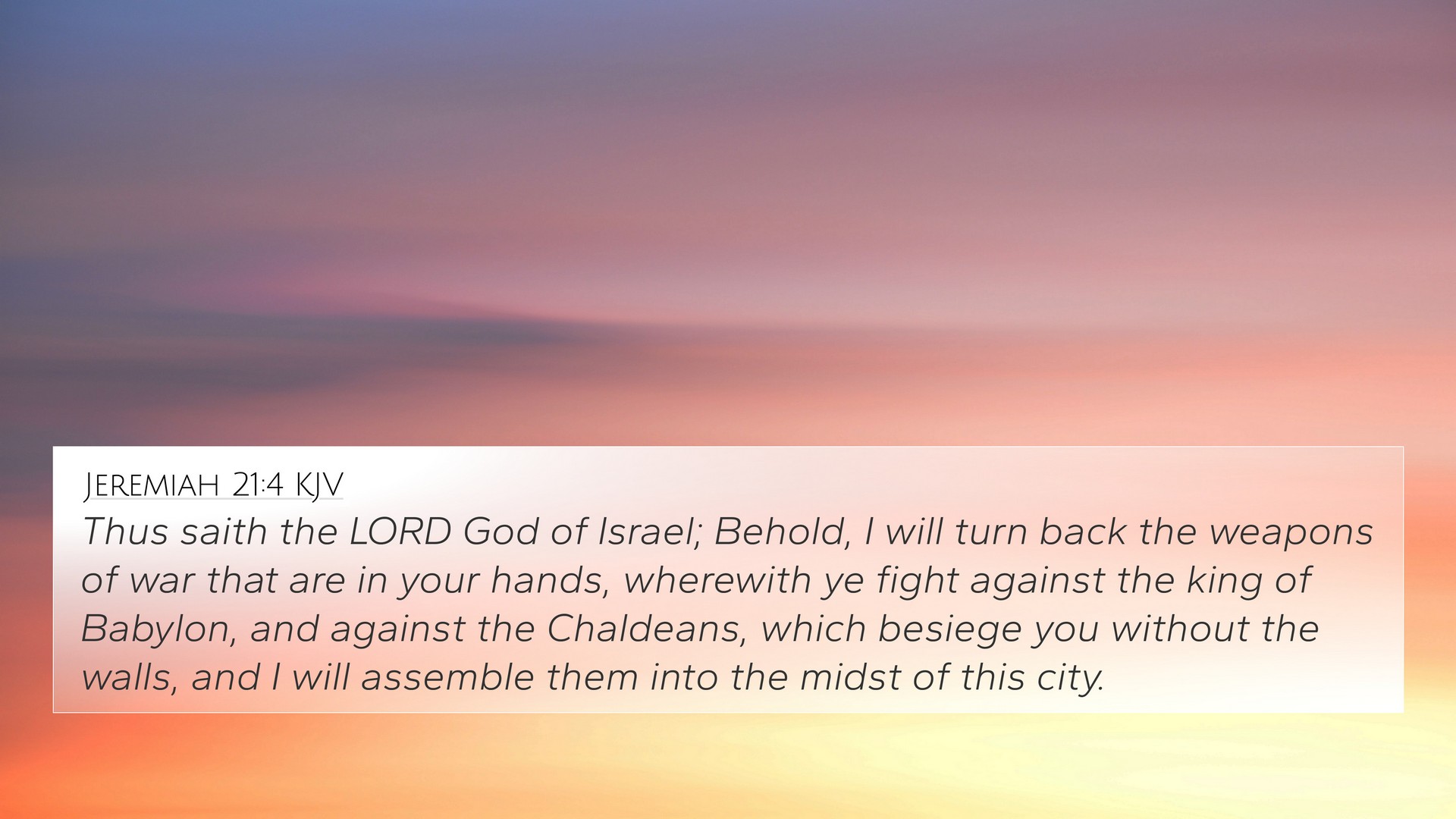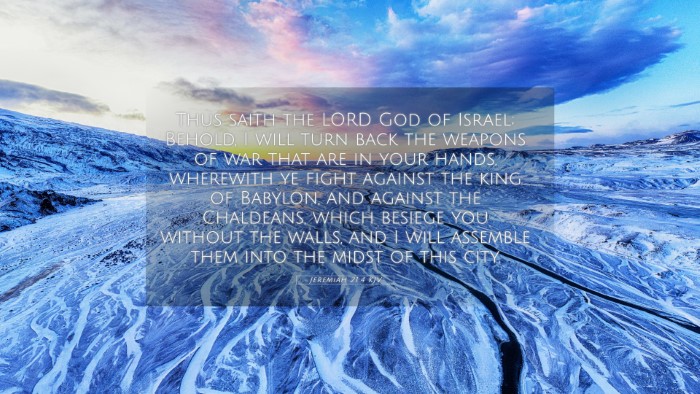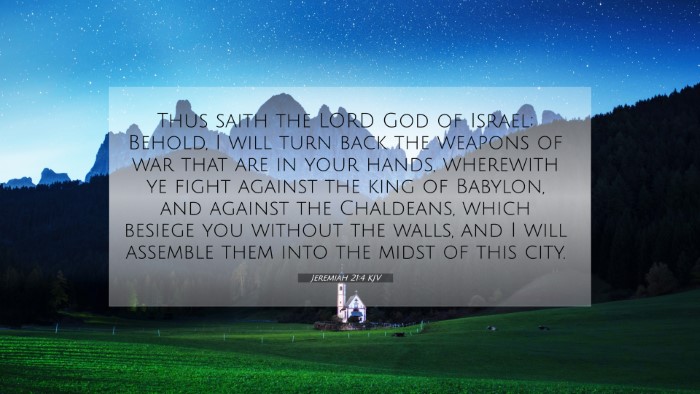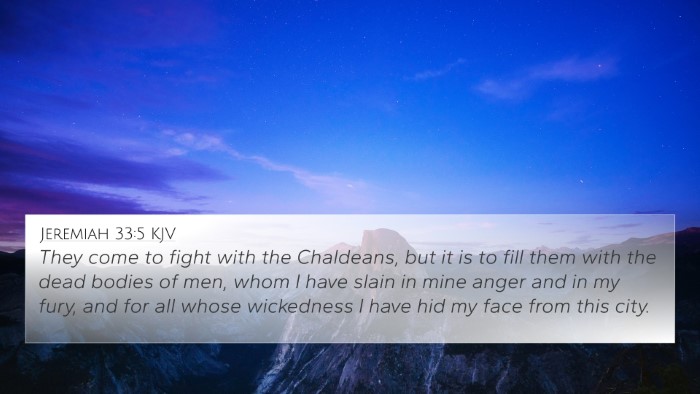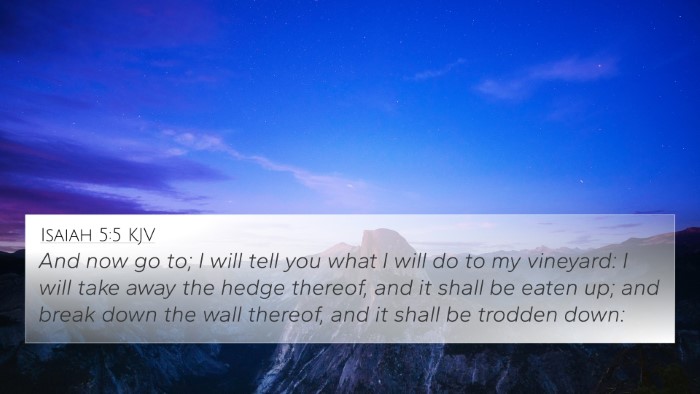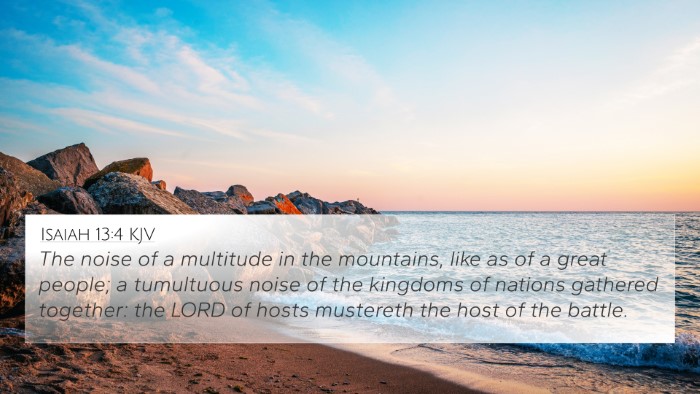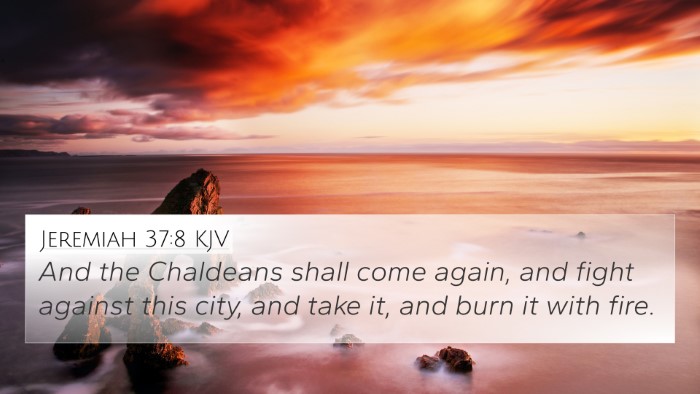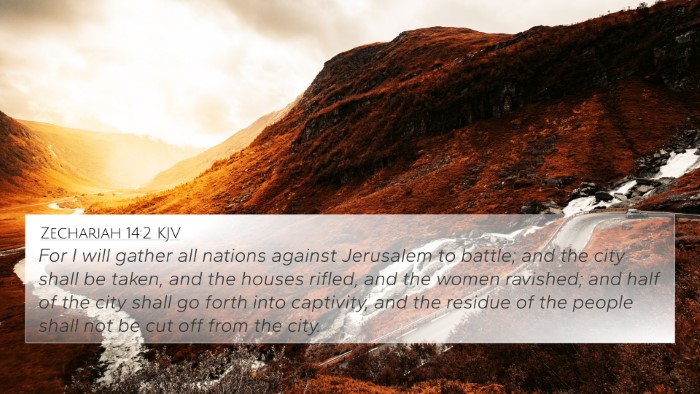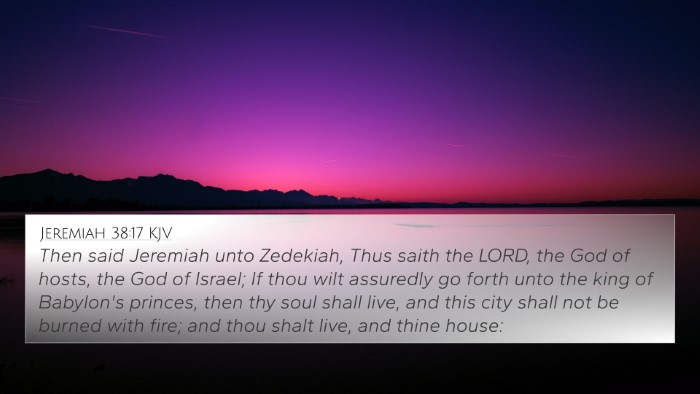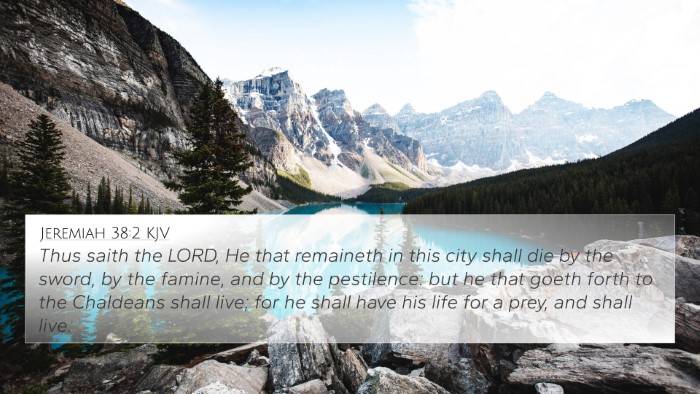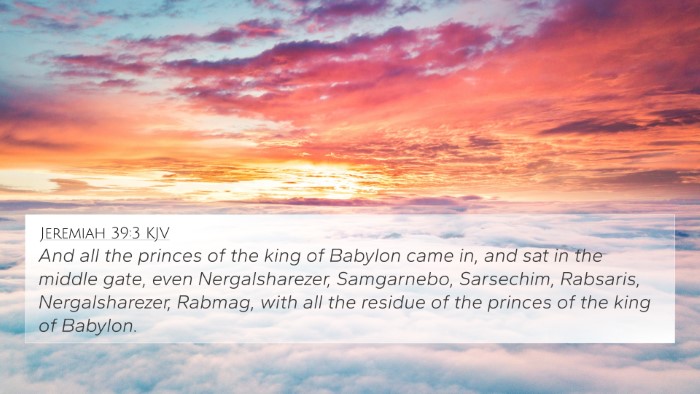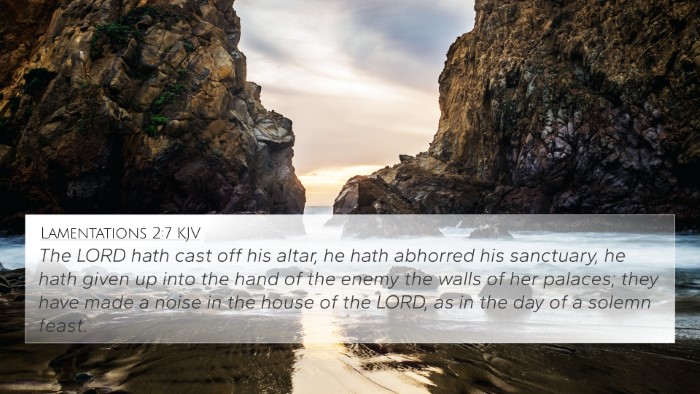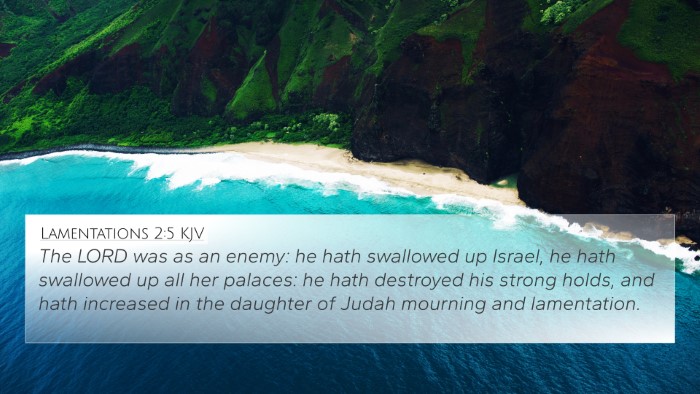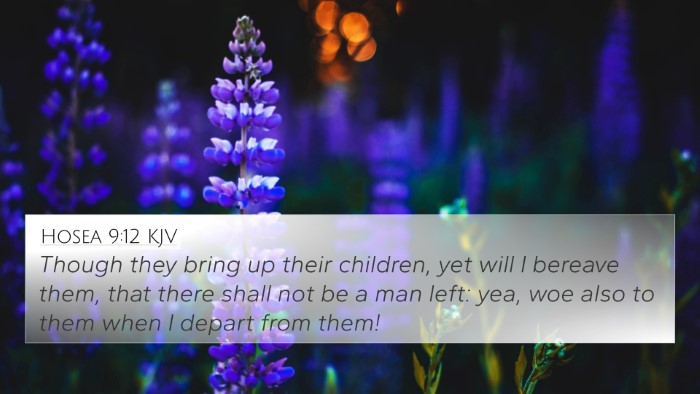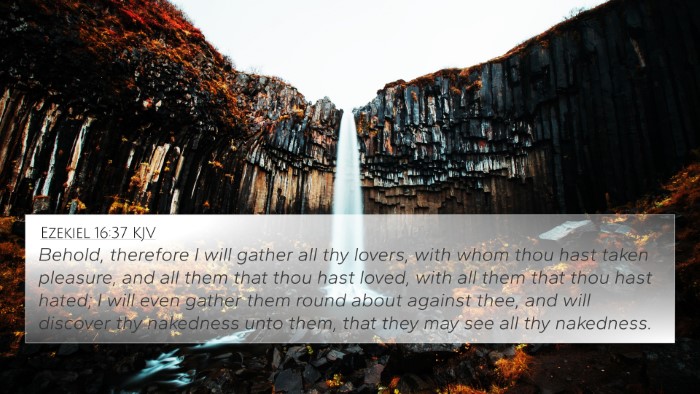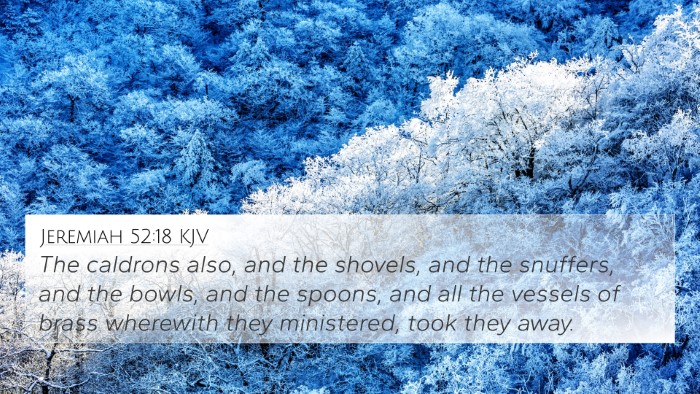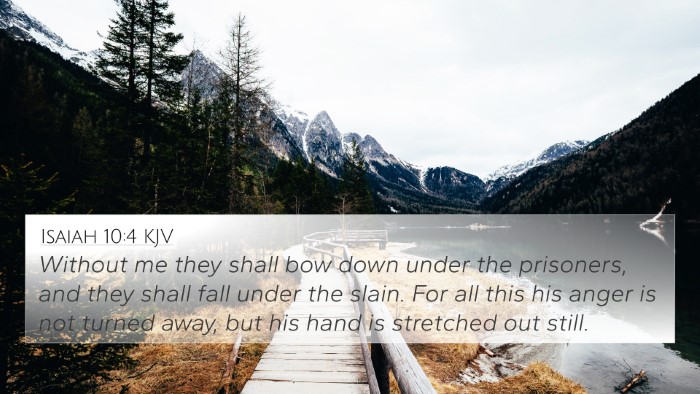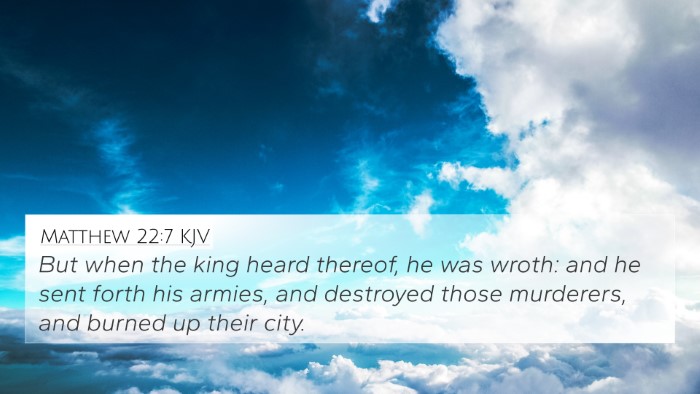Understanding Jeremiah 21:4
Jeremiah 21:4 states:
"Thus saith the Lord God of Israel; Behold, I will turn back the weapons of war that are in your hands, wherewith ye fight against the king of Babylon, and against the Chaldeans, which besiege you without the walls; and I will assemble them into the midst of this city."
This verse presents God's declaration regarding the fate of Jerusalem amidst the Babylonian siege. It reflects God's sovereignty, judgment, and ultimate purpose for His people.
Verse Meaning and Interpretation
Jeremiah is known as the weeping prophet, often mourning over the sins of Israel and the resulting judgment. In this context, several key themes emerge from Jeremiah 21:4:
- Divine Declaration: God explicitly communicates His intentions to the people of Jerusalem. The phrase "Thus saith the Lord" establishes authority and sets the stage for God’s imminent actions, echoing similar declarations found in Isaiah 1:18 and Ezekiel 12:25.
- Inescapable Judgment: The mention of weapons and warfare indicates that the people of Jerusalem are entrenched in conflict. God's intervention, however, shows that their efforts are ineffective against His will, similar to Isaiah 54:17, which affirms that no weapon formed against them would prosper if God is on their side.
- Reversal of Fortunes: The promise to 'turn back the weapons of war' shows a stark change in circumstances. It highlights God’s power to change situations dramatically, akin to the themes found in Psalms 107:14, where God brings the captives out of darkness.
- God’s Assembling of Forces: The act of assembling indicates preparation for what is to come. It symbolizes God's control over both His people and their enemies, resonating with Isaiah 43:5-6, where God gathers His people from the ends of the earth.
Connections with Other Scriptures
The following Bible verses relate to Jeremiah 21:4 and expand the understanding of its themes:
- Psalm 44:6-7 - A plea for divine help in time of war.
- Isaiah 37:36 - The Lord’s intervention against adversaries, showcasing his omnipotence.
- Jeremiah 16:16 - The gathering of God’s people; a theme of divine restoration.
- Ezekiel 25:14 - God’s retribution against nations and justice for His people.
- Romans 8:31 - If God is for us, who can be against us, reinforcing the protective aspect of God in the heart of battle.
- 2 Chronicles 20:15 - Assurance of God's sovereignty over battles and conflicts.
- Exodus 14:14 - God fights for His people; they need only to be still.
Insights from Public Domain Commentaries
Matthew Henry's Commentary
Henry emphasizes the certainty of divine judgment and God’s sovereignty over worldly powers. He articulates that God has not abandoned His people, even in turmoil, and He remains their ultimate protector.
Albert Barnes' Notes
Barnes highlights the irony in the situation—while the people think their weapons are their security, God’s declaration reveals that true safety lies in reliance upon Him, not material defenses. He emphasizes the futility of fighting against God’s will.
Adam Clarke's Commentary
Clarke notes the historical context of this verse, linking it to the Babylonian siege as a fulfillment of prophecy. He explains how this passage serves as both a warning and an encouragement; a reminder of God’s faithfulness amid judgment.
Thematic Analysis
This verse incorporates themes that resonate through many Biblical texts—these include God's sovereignty, the futility of human efforts without divine support, and the reassurance that God can turn conflict into resolution. Biblical cross-referencing and thematic connections can provide insight for deeper study.
Tools for Bible Cross-Referencing
When studying verses such as Jeremiah 21:4, utilizing tools can enhance one's understanding:
- Bible Concordance: Helps identify specific themes and keyword references throughout the Bible.
- Bible Cross-Reference Guide: A useful resource for locating similar verses and themes quickly.
- Bible Study Methods: Methods that focus on cross-referencing analysis allow deeper understanding of Biblical connections.
Conclusion
Jeremiah 21:4 reflects God’s unwavering authority, the protection of His people, and the certainty of divine intervention in circumstances that seem hopeless. Cross-referencing this verse with others throughout the Bible can illuminate its profound themes, reinforcing the understanding of God’s character and His relationships with humanity.
